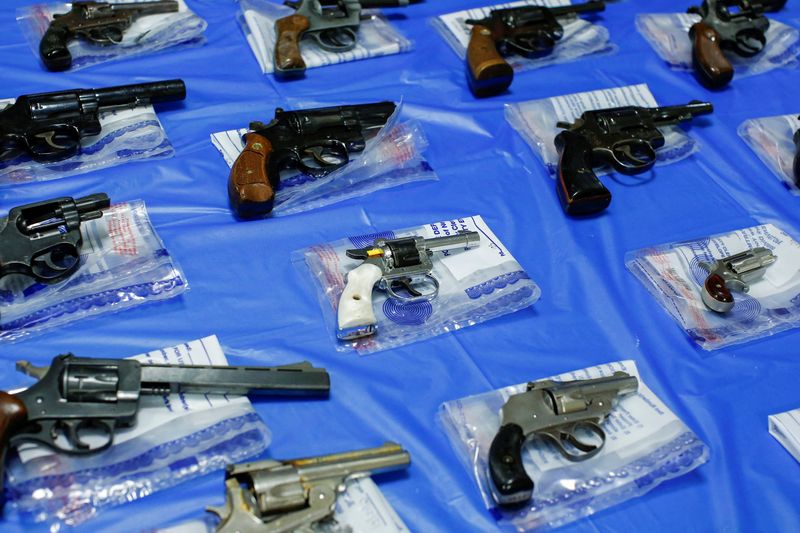By Andrew Chung
(Reuters) -The U.S. Supreme Court on Wednesday turned away a challenge by a group of firearms dealers in New York to numerous Democratic-backed measures adopted by the state last year regulating gun purchases that the businesses said hurt their businesses.
The justices, with no public dissents, denied a request by the dealers to block the laws, some of which imposed gun safety requirements on retailers, while their appeal of a lower court's decision in favor of New York proceeds.
The state's Democratic-led legislature passed some of the laws last June. Others were adopted in July after the Supreme Court the prior month struck down New York's limits on carrying concealed handguns outside the home in a landmark ruling expanding gun rights.
New York officials have said the new gun restrictions, which face numerous legal challenges in lower courts, are needed to protect public safety. The Supreme Court has broadened gun rights in three key rulings since 2008.
The justices on Jan. 11 rejected a separate bid by members of a gun rights advocacy group to block much of New York's Concealed Carry Improvement Act, signed into law by Democratic Governor Kathy Hochul on July 1.
In a statement issued with that decision, Justice Samuel Alito, joined by fellow conservative Justice Clarence Thomas, said he understood the court's action in that instance to be procedural rather than expressing any view on the merits of the case. Alito wrote that the New York law at issue "presents novel and serious questions" under the U.S. Constitution's provisions on gun rights and free speech.
That law banned firearms in a long list of "sensitive locations" including churches, medical offices, theaters, public parks and Manhattan's popular Times Square. It was passed in response to the Supreme Court's June 23 decision that declared for the first time that the Constitution's Second Amendment protects an individual's right to carry a handgun in public for self-defense.
The June ruling also required courts to evaluate if gun restrictions were "consistent with the nation's historical tradition of firearm regulation," making it harder to regulate guns in a country where mass shootings are commonplace.
Nine individuals who sell firearms in upstate New York and a gun collectors association sued state officials in federal court to challenge a series of laws regulating purchases.

Some of the laws impact retailers, such as requiring security alarms and sales record-keeping. Others affect individuals, such as requiring background checks for ammunition sales and training for obtaining a concealed-carry license.
A federal judge refused to block any of the challenged laws for various reasons, including that the Second Amendment protects individuals, not businesses. In December, the Manhattan-based 2nd U.S. Circuit Court of Appeals also rejected the plaintiffs, but ordered their appeal to be fast-tracked.